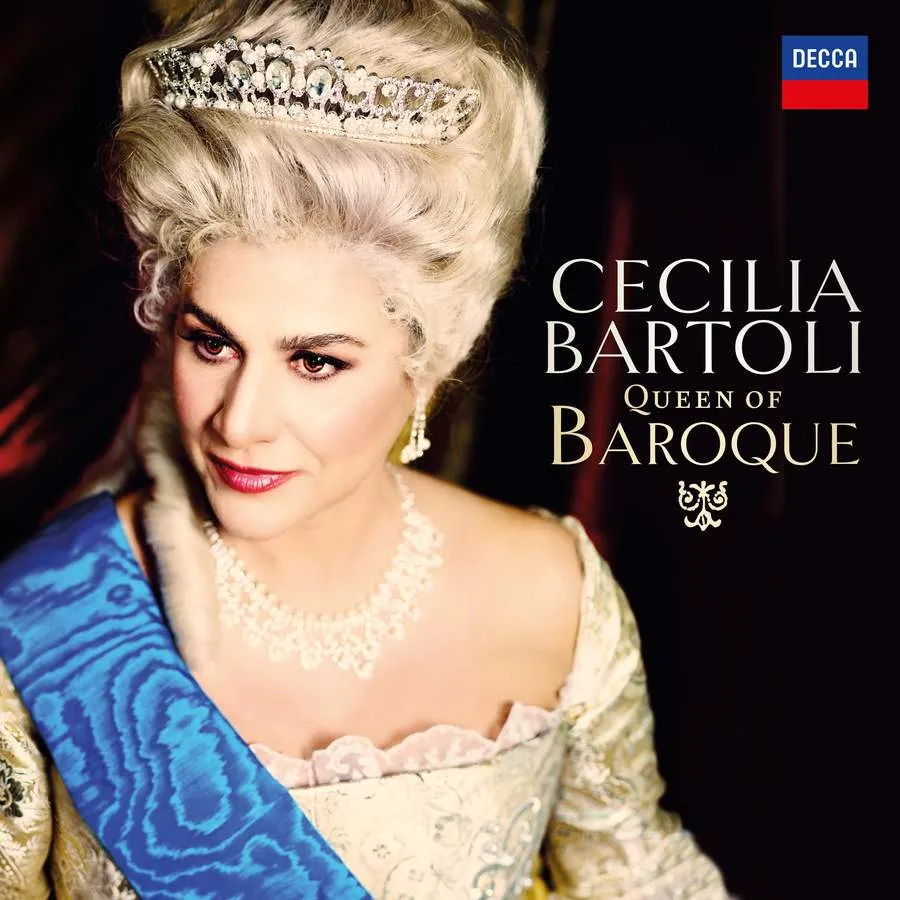
Queen of Baroque Arias by Steffani, Vinvi, Handel, Broschi, Vivaldi, Graun, Albinoni, Caldara, et al Cecilia Bartoli (mezzo-soprano), Philippe Jaroussky (countertenor), Sol Gabetta (cello); Il Giardino Armonico/Giovanni Antonini Decca 485 1275 75:55 mins
This is a compilation disc surveying the diva’s 20 years of activity in the recording studio on behalf of Baroque composers, with the forgotten highlighted amongst the celebrated: two new tracks each represent a world premiere recording.
The first is an aria sung by Enea in Agostino Steffani’s I trionfi del fato (1695). While everything Bartoli does is always dramatically motivated, her dogged bashing her way through the coloratura has long been a mannerism and is so here.
Similarly, in Erissena’s aria from Leonardo Vinci’s Alessandro nell’Indie (1730), the lower part of the voice sounds rough while there are mannered moments when she bends the tone for comic effect; yet despite these negatives, her consistent sense of character and rhythmic alertness remain plusses.
A famous (and indeed a parodied performance) is ‘Agitata da due venti’ from Vivaldi’s Griselda – certainly flamboyantly virtuosic, and less mannered than some. She makes a determined assault on ‘Son quel nave ch’agitata’ from Riccardo Broschi’s Artaserse, which though arguably over-emphatic remains a tour de force.
Bartoli indeed thinks about everything she sings, and her whispered, beautifully phrased account of ‘Lascia ch’io pianga’ is carefully shaded, with decorations scrupulously delivered. Other, slow melodies, too, are ideally shaped: Handel’s ‘Ombra mai fu’ and Porpora’s ‘Parto, ti lascio, o cara’ (from Germanico in Germania) among them.
Of the duets, Bartoli and June Anderson in the opening of the Pergolesi Stabat Mater don’t blend, though in excerpts from Steffani’s Niobe and I trionfi del fato she and Philippe Jaroussky achieve some flawless duo singing.
George Hall